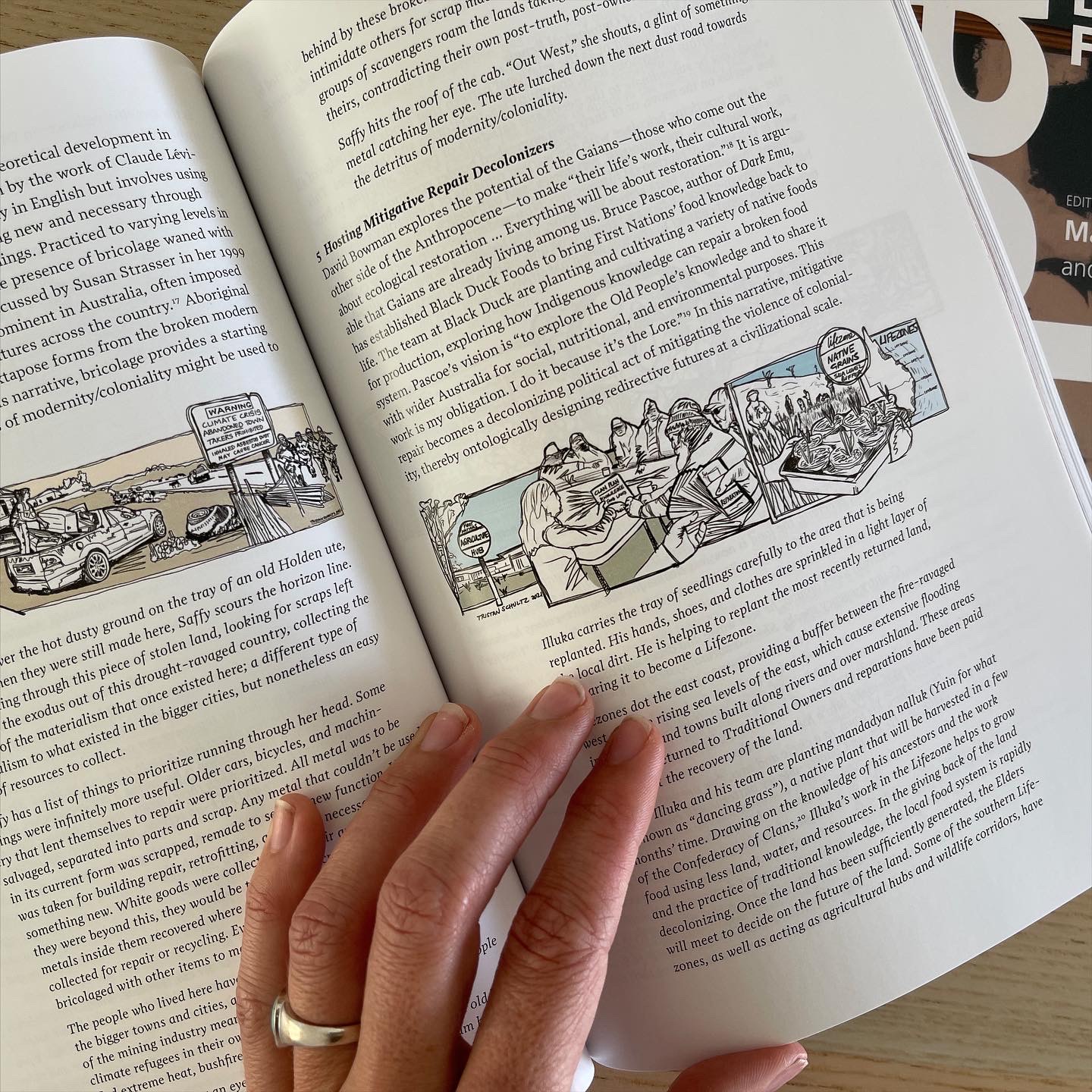A book chapter written by Bec Barnett and Tristan Schultz
This book chapter explores the affordances of repair on the move, amidst the maelstrom of broken modern worlds. People across the globe are now more than ever having to adapt their lives in relation to the impacts of climate change. Some of these challenges include sea-level inundation, poisoned water sources from fossil fuel extraction, land degradation due to rising heat, and destructive agricultural practices.
From a critical design lens, we explore repair moving through these wicked problems, articulated through six frames; adaptive repair moving transferrers; adaptive repair moving amplifiers; adaptive repair host bricoleurs; adaptive repair host move preppers; mitigative repair decolonisers, and; cultures of ontological repair. A series of case studies are explored through these frames, supplemented with experimental design fictions of near-future scenarios that illuminate how they may be considered leverage points with potential to nudge pluriversal worlds towards futures of sustainment.
The chapter is part of the book Repair: Sustainable Design Futures, edited by Markus Berger and Kate Irvin. The book investigates repair as a contemporary expression of empowerment, agency, and resistance to our unmaking of the world and the environment. Repair is an act, metaphor, and foundation for opening up a dialogue about design’s role in proposing radically different social, environmental, and economic futures. Thematically expansive and richly illustrated, with over 125 visuals, this volume features an international, interdisciplinary group of contributors from across the design spectrum whose voices and artwork speak to how we might address our broken social and physical worlds. Organized around reparative thinking and practices, the book includes 30 long and short chapters, photo essays, and interviews that focus on multiple responses to fractured systems, relationships, cities, architecture, objects, and more.
You can purchase the book here.
